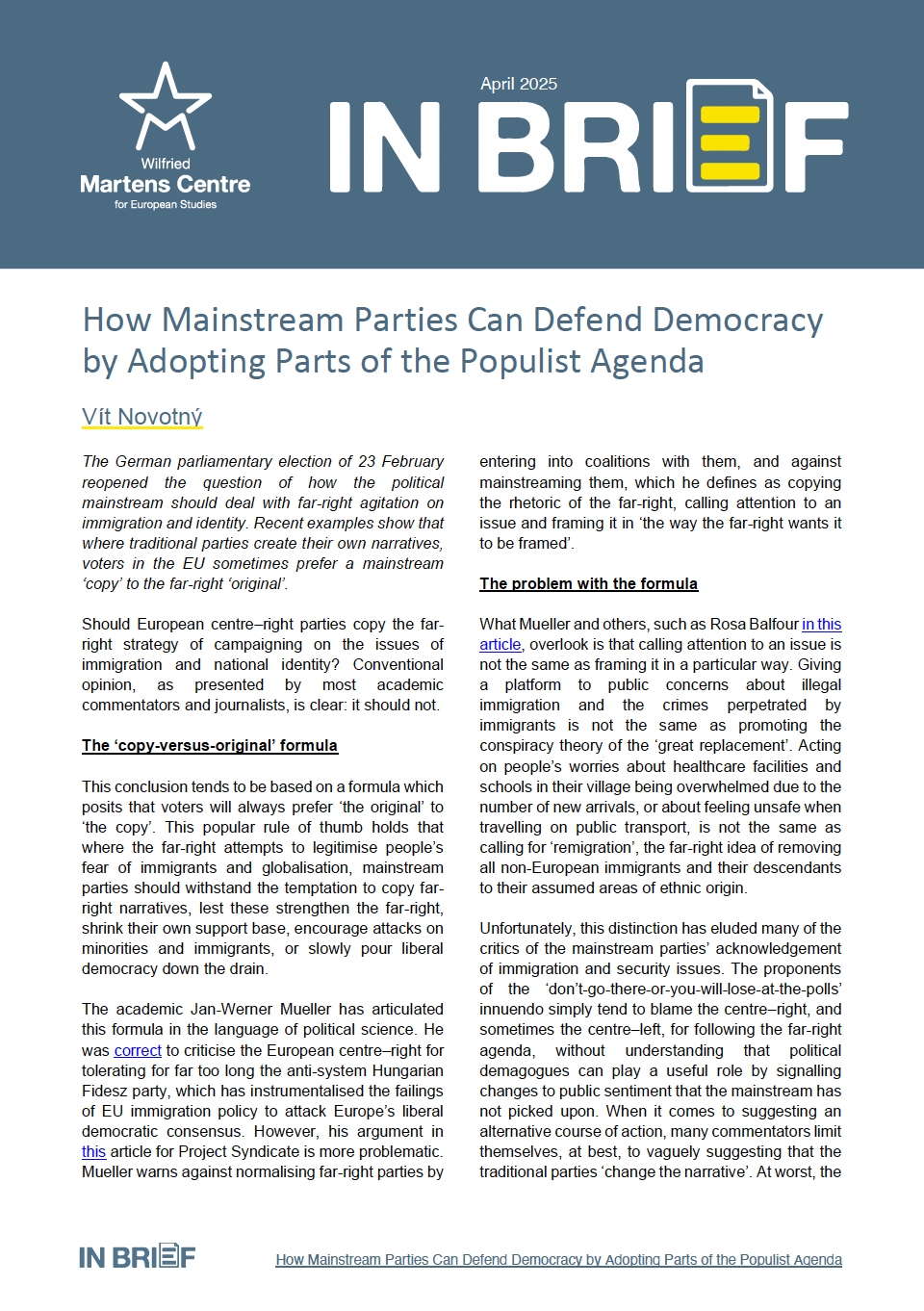Ukraine’s Reforms: Real or Fake?
17 December 2014
Ukrainian Prime Minister Yatseniuk, along with a number of ministers, came to Brussels this week for talks about ongoing reforms in Ukraine, the Association Agreement and the security situation. Ukraine now has a new parliamentary coalition and therefore, a new government. Hopefully, we will now see real reform.
But the long process of negotiation between the parliamentary elections on 26 October and the actual appointment of ministers has left many with a somewhat ambiguous impression. Before anyone actually started to get to work, the whole process became mired in intrigue. All of us remember 2005 and the ensuing unraveling of the Orange Revolution. Nobody wants to see that story repeated.
Before the election, President Poroshenko had hoped that he would be able to nominate a government of his choosing. But that became impossible with the unexpectedly high electoral support for “Narodnyi Front”. Its leaders, Arseniy Yatsenyuk and Oleksandr Turchynov, led Ukraine through the complicated period of spring 2014 and their party has thereby gained a degree of national sympathy.
The composition of Poroshenko’s political group was not helpful for the President. The “Poroshenko Bloc” contained a number of candidates of a less than savory variety. Poroshenko’s triumphant presidential campaign before 26 May also appears to have bred a sense of complacency and inertia. While Ukrainian society has changed rapidly, politicians have simply not caught up.
A similar complacency could yet come to haunt Arseniy Yatsenyuk. He received the trust of the people and must not squander it. It is integral that he repays this trust with action beyond mere public criticism of his government partners.
Raised in an environment of endless talk shows, Ukrainian politicians appreciate the media component of their work too much, assuming a good speech on television to be more important than dozens of specific actions. We are living in an information era where the appearance of action without substance becomes a more and more difficult juggling act by the day.
Last week, the Ukrainian Prime Minister presented a governmental action programme which aroused a lot of discussion in Ukrainian society and within the coalition itself. The programme was eventually changed with the addition of one significant sentence: the current coalition agreement was identified as an integral part of the governmental action programme. Why this detailed agenda of reforms and legislative initiatives designed by politicians and civil society representatives together was not deemed a sufficient action plan for government in its own right is anyone’s guess. We are now left with numerous contradictions between the Government’s plan and Coalition agreement with no agreed method for resolving them.
Successful reform requires not only good law but also effective implementation. Here are some of areas of reform identified in the Coalition agreement:
– Constitution: A proper political framework of checks and balances cannot be designed by one of branches of power, so a Constitutional Assembly should be created. According to the Agreement, a special working group in the Parliament will select delegates to constitute the Assembly.
– Anticorruption: So far anticorruption is the brightest example of reform in Ukraine. The October 5 anti-corruption law has been adopted by the Parliament. The creation of a register of real estate owners allows for the tracking of those who bought “New Mezhyhirya” and for questioning of suspicious landlords. It is a great success for the Minister for Justice. Beneficial owners legislation is another triumph, it allows for finding the ultimate holders and those who legally or illegally profit the most.
– Judicial: The “On restoration of confidence in the judiciary” law obligates checks on the general jurisdiction of judges and the prosecution of those who violated the oath or committed a criminal crime. In addition, a new law on prosecution has to change the paradigm of this institution from civil surveillance to actual prosecution. Those two laws have been adopted but they met natural resistance from the whole Court and Prosecutor system.
– Decentralisation and public administration: The main challenges faced by decentralisation are efficiency and authority. Hanna Hopko, a newly elected deputy registered a project of law that promotes quality deputies and leads to the cutting of unnecessary costs in the maintenance of local councils. The next step is to make amendments to the Constitution to steer duties from Kyiv to local and regional communities and it should be done before the New Year. This reform will boost the real transformation from a post-soviet to a democratic state.
– Economic development and growth
– Regulation, Business and competition
– Financial sector
The real indicator of reforms in economic and financial sector is the Budget 2015. When the Government presents it we will see what rule-set the Prime Minister has chosen: the old (crisis) or the new (reforms).
The previous Yatsenyuk government is not remembered for reformist solutions even within the government and administration itself. And Yatsenyuk, despite loud statements of his willingness to sacrifice his career, seeks to share responsibility for unpopular decisions with other political forces. Maybe he believes that will help him to become President himself one day. In other circumstances, this could be understandable. After the killing on Maidan in February and amidst a drawn out war in the East – it is not.
Yesterday Petro Poroshenko has appointed Oleksandr Turchynov as a Secretary of the National Security and Defense Council. The president wanted to send a clear signal that there will be no war between him and Yatsenyuk. His signals are transparent. Turchinov is a bridge in relations between Poroshenko and Yatsenyuk, a sign of mutual trust. Poroshenko gave a member of Yatseniuk’s team a position in his territory. This move shows understanding from the President that Ukraine’s future depends the Parliament and the President working together.
In general, the Governmental programme in concert with the Coalition agreement look promising; let’s see if there is enough political will to make it happen.
ENJOYING THIS CONTENT?





















